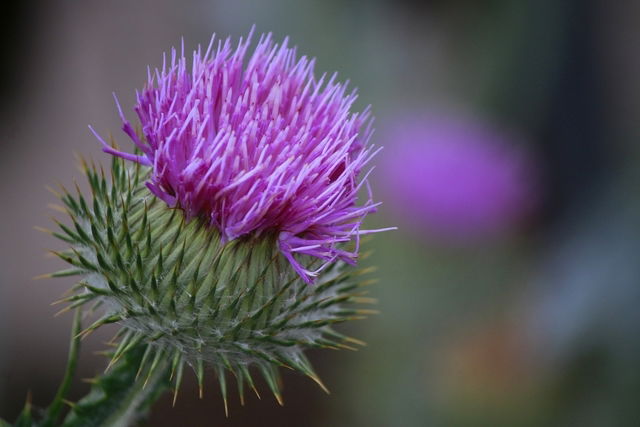Milk thistle is a medicinal plant of the Silybum marianum species that is often recommended for the treatment of liver issues (like fatty liver, hepatitis or jaundice). It is rich in substances like silymarin and silybin which have a potent antioxidant effect that helps to promote liver cell regeneration and reduce inflammation.
The parts that are most used in this plant are the seeds from which the medicinal substances are extracted. These extracts are used for tea or to make capsules.
Milk thistle can be purchased at natural health stores, pharmacies and open markets, and should be used as directed by a doctor or medicinal plant specialist.

Health benefits
Milk thistle is often recommended for the treatment of:
- Fatty liver
- Viral hepatitis
- Jaundice
- Cirrhosis
- Liver fibrosis
- Poisonous mushroom toxicity
- Liver damage caused by medications or alcohol
- High ferritin levels
- Alzheimer’s
- Parkinson’s disease
- Depression and anxiety
- Multiple sclerosis
- Type 2 diabetes
- Metabolic syndrome
- Fungal infectious caused by Candida albicans;
- Increasing breast milk production
Milk thistle contains anti-inflammatory, antimicrobial, antidiabetic, neuro-protective, hepato-protective and cardio-protective properties, due the presence of substances like silybin, isosilybin, silychristin, di-hydro silybin and silydianin.
In addition, milk thistle contains astringent properties that facilitate digestion and stimulate appetite. It can relieve symptoms of fatty liver like appetite loss, nausea and vomiting.
Some studies [1,2] show that milk thistle can also decrease the growth of many types of cancer cells and even cause cellular death, particularly in cancers of the stomach, prostate, liver, colon, bladder, skin and blood. However, more studies in humans are needed to support this benefit.
How to make milk thistle tea
Milk thistle tea can be prepared with the seeds of this medicinal plant. This tea can be consumed as a compliment to the medical treatment of fatty liver, although it should be combined with regular exercise, a healthy diet, and a non-smoking, non-drinking lifestyle.
Ingredients
- 1 teaspoon of milk thistle seeds
- 1 cup of boiling water
How to prepare
Add the seeds to the cup of boiling water and soak for 15 minutes. Strain and drink 3 to 4 cups per day, 30 minutes before meals.
Milk thistle can also be found in pill or capsule forms, although they are usually combined with other plants, like boldo and artichoke), which also promote liver regeneration. The daily recommended dose for capsules is generally between 1 to 5 g, although you should see a naturopath or medicinal plant specialist for specific dosing.
Possible side effects
Milk thistle is considered to be safe, although ingesting high amounts can cause side effects like stomach irritation, burns along the gastric mucosa, diarrhea, vomiting and nausea.
Because it has antidiabetic properties, milk thistle can greatly reduce blood sugar levels and lead to hypoglycemia. This can be noted throguh symptoms like tremors, weakness, cold sweats, pale skin, blurry vision, palpitations, chest pain, confusion, difficulty sleeping or insomnia.
Milk thistle can cause allergic reactions, especially in people with an allergy to this plant or an allergy to chrysanthemums, daisies, artichokes or kiwi.
Contraindications for use
Milk thistle should not be used by children, pregnant women or patients with a history of high blood pressure, obstructed bile ducts, or gastric issues (like gastritis or ulcers).
When breastfeeding, milk thistle should only be consumed as directed by a doctor. This plant has been shown to increase breastmilk production and does not crossover into breastmilk, however there are not enough studies available to guarantee that it does not pose as a health risk for the mother or baby.
Milk thistle should also not be used by people with estrogen-promoting cancers, like breast cancer or ovarian cancer, due to its natural estrogenic action.
